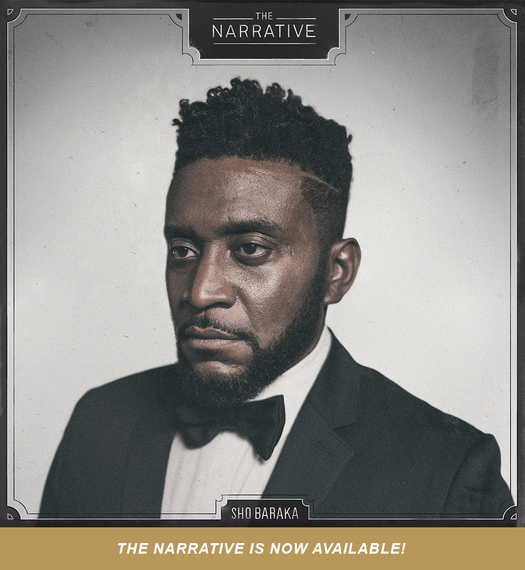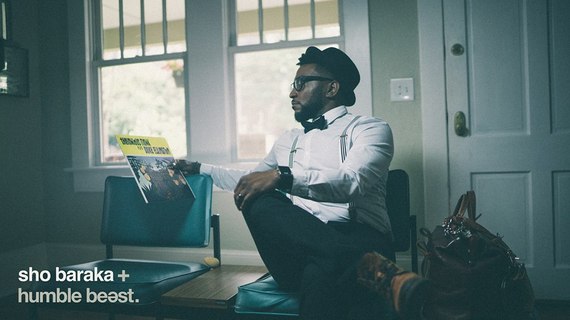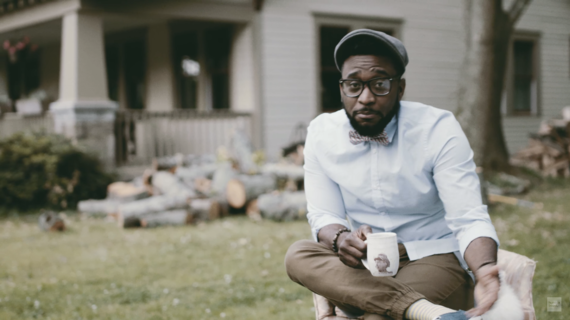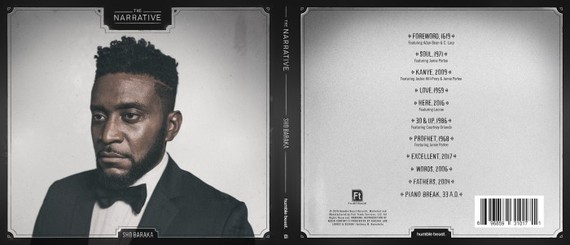Frederick Douglass was born in "Tuckahoe, near Hillsborough, and about twelve miles from Easton, in Talbot county, Maryland" circa 1818. He had "no accurate knowledge of [his] age," because he never saw "any authentic record containing it," and further observed "the larger part of the slaves know as little of their ages as horses." He begins his iconic autobiography, Narrative of the Life of Frederick Douglass, An American Slave with those riveting anecdotes. He then fills its pages with heartbreaking details of his lot as property of Captain Aaron Anthony, his courageous quest to secure his freedom, and the remarkable life he lived thereafter. Frederick Douglass' narrative, like scores of other slave narratives, became instrumental in communicating the plight of "millions of his manacled brethren, yet panting for deliverance" in that their firsthand accounting of the the horrors of chattel slavery, and the urgent need to abolish it, became a clarion call for the cause of freedom.
More than a century after Douglass published his autobiography, Amisho "Sho Baraka" Lewis sought to change the narrative of "white supremacy and black nihilism" by releasing The Narrative. Inspired by the life and work of Frederick Douglass (along with a host of others), Sho Baraka changed the narrative by presenting his own. Born in Alberta, Canada, yet reared in Southern California as N.W.A. began their meteoric rise, Sho Baraka found himself in classrooms at Tuskegee University, then at the University of North Texas, after he saw scores of his friends land in prison after trying to actualize the musings of N.W.A. There, he found his voice as a musician. In the time there since, he has continually found ways to synthesize his divergent influences to present his unique perspective to the world. He says he is, "[F]rom the West, some where between Cornel and Kanye," raised some where between "Section 8 and Cloud 9." The Narrative is a continuation of those themes.
Sho recently sat down with me again, this time to talk about his splendid new album, The Narrative, its inspiration, reuniting with Lecrae, making adult contemporary hip-hop, his decision to sign with Humble Beast, his love for the Lakers, and more. What follows is the better part of that conversation.
Congratulations on the release of The Narrative. I agree with the sentiments of most who have heard it--it is your best work, and you have a contender for "Album of the Year."
Thank you man. I appreciate that.
Much has transpired since we last sat down to talk about your release of the Talented Tenth. In your First Spins interview, you mentioned that all of your albums have come three years apart--Turn My Life Up in 2007, Lions and Liars in 2010, The Talented Tenth in 2013, and now The Narrative. When we last spoke, you mentioned the growth and maturation that transpired in between albums. What does that look like this go around? How does your growth translate into The Narrative?
I think I'm a lot more patient with people who don't understand where I'm coming from. I'm a lot more patient to those who do not share my sentiments on the issues of the world. I've grown [wiser] in how to communicate and talk to them; I've become more patient with how I engage people [who do not understand my perspective]. I am more patient in communicating with less angst, less anger.
The other thing is I have learned trust other people who are working with me, and recognize others' talents. I recognize there are things I do well, and things I don't do well. [I've come to learn] I must allow other people to be great. The older you get, the more you recognize you don't' know everything. You become more willing to concede to the world that you are not as intelligent as you thought you were. It creates a lot space for great things to happen. It creates a sense of hospitality, an environment for people to do wonderful work, and a lot of great things happen.
That makes sense. Talk about the greater story of the influences depicted in your album artwork--Frederick Douglass, W.E. B. Du Bois, Cornel West, Langston Hughes, Annie Malone, Mary McCleod Bethune, C.S. Lewis, et al. How did their voices help shape yours?
There's nothing new under the sun. When I think about creating art, critiquing culture, and addressing life from a particular paradigm, I think I'm an intelligent individual, but there are those who have walked this life before me, who have thoughts and shared on these things. I love to engage those who came before me in antiquity. How do I plow through these issues with some of my heroes? If I disagree, I want to think of why, to make some dissonance. I respect their thinking and their [respective] processes. I think they all had similar tensions. What do we do with the "Negro Problem" here in America? How do we fight for our spot at the table but not neglect our own in our community while trying to succeed. Those are a couple of things I am trying to communicate.
Who told you to take Kanye off the cover?
(Laughs) A couple of people. A couple of people told me to [take Kanye off of the artwork on the disc for The Narrative].
You need to keep them in your circle. That was real advice.
That's good. Maybe four years ago, I probably would have done that [kept Kanye West on the album artwork among the likes of Frederick Douglass, W.E.B. Du Bois, Langston Hughes, Cornel West, et al]. That's the beautiful part of trusting people. Yeah, my buddy Ritz, my homie Adam, they told me to take Kanye off the album art.
Talk to me about the album's aim to simultaneously change the narrative and be the narrative of Amisho. In essence you change the narrative by presenting a different narrative.
Yeah, yeah absolutely. Yeah, so one of the things I wanted to do was storytelling, create a platform for identity formation. The thing about stories is that you can either tell good stories or you can tell bad stories. For so long, we have allowed bad stories to shape the African American experience and context. I believe it was my job to just assist in the correction of that narrative, to tell other stories, not just from a communal perspective, but a personal perspective. I see myself as that Louis Portier who engages history, who engages in this journey. It is highly important to try to talk about the successes and the survival as well.
So you can change the story ...
Absolutely.
So how do we escape Egypt without asking Pharaoh for assistance?
That's a good question. Well, I think that's a very layered conversation. One of the things I think is important is when we talk about the tensions of being an oppressed people, a group of people who come to have a narrative that is deeply entrenched in oppression. We try to find our identity in our oppressor. I think that is problematic. We need to form our identity outside of what our oppressor says about us. We have to [find a path to freedom] outside of our oppressor's assistance.
That makes sense. For the casual observer, the Humble Beast signing came as a surprise. I imagine many thought you may never sign to a label again. What made Humble Beast the appropriate platform to house Sho Baraka's work? Talk to me about The Road to Humble, 1979
Their brand is amazing. I trusted Thomas, who is the CEO. Not just as a CEO, but as a man of God, as a friend, as a directional leader. When I think about Humble Beast, I knew they were small, only marginally funded, but they do a wonderful job making dimes look like dollars. You know what I'm saying? That's what I felt like I needed.
For the record, I want it to be known that while I respect Humble Beast's model of "freely given," I bought The Narrative.
Ey, you better have purchased it!
Speaking of labels, you and Mr. Moore reunited like old times. What was it like working together again? I know many people thought your split may have been acrimonious, but such was not the case.
Yeah, it's a blessing man. I thought [Here, 2016] was a microcosm of our friendship in a sense. When he says, "Like old time again homie" there's a reconnecting of us. What a lot of people don't know is our split, it was not acrimonious, but we were not really that close. In recent times and days, the last year or so, we have redeveloped a dope friendship. I am excited to have him on the album. I'm particularly glad because that song fit. I believe his new understanding of addressing issues facing race, culture, and faith is brave considering where he was coming from. I think having him on that song, he felt liberated. I felt his verse was really good.
It was.
Yeah. Usually in the past when he was on a song of mine I would be frustrated, because that song would be associated with the whole album. I just knew that it would be the first song people who run to because he was on it. That would frustrate me because the song would not always be a good reflection of the album. [With Here, 2016], I'm not as frustrated, because I think it fits the ethos of the album. This song, on this album, I don't have a problem, because [its content] is still germane to the theme of the album; it's consistent with the ethos of [The Narrative]. That's even more encouraging.
I'm here for that. And you had Ekemini come in at the end, and beat it out of the park.
Yeah. I felt that I couldn't figure out how to include a female narrative within the song, so I thought the best to way to have a female narrative was to have a very articulate, wise black woman just come and rant for two to three minutes. Ekemini was the first person that came to mind.
That makes sense. She was the woman for the job.
Yeah, she came in and did a wonderful job.
Speaking of collaborations, much of your core followers were expecting a Louis Portier album. Was the delay behind its release intentional, or was it a matter of getting the music right? I know you and James decided to go your separate ways and pursue your own artistic endeavors upon the release of The Narrative. Will there ever be a Louis Portier album?
Nah. No, Louis Portier album, but we are still cool, but nah it was too much work, and we have different perspectives on art and life.
Indeed. When did you know The Narrative was ready?
The day it was done. Also, I realized when I took two songs off that I felt I was forcing on the album. When I took those songs off, it felt complete. I let Braille, and Thomas, and Nate the Beat Breaker hear it. When they put their hears to it, and thought the album was thorough and complete, cohesive piece of work, I thought it might be worth letting go of it now. The artist in me usually has a hard time letting go. But that is how I have grown. I tried to empower those people around me to speak into the album, and as much into me.
What do you think has made the people more ready for The Narrative? I ask because when you released Talented Tenth, while it received critical acclaim, you were unfairly maligned upon its release as well.
Oh man! Yes. Exponentially. There is an exponential difference between the reception of the two albums.
Why would you say that is? You talked about a more mature Sho learned how to taper your frustrations and present them in a way that is more palpable for the audience. Do you think the audience matured too?
2016 made people more ready. [More specifically], I think the Lord gave me an ability to speak to issues in 2013 people were not ready to swallow and deal with it. Then 2014 and 2015 came along, and did a work on folk, put them in a position to recognize this world is not what they thought it was. This country is not as united as we thought it was. Discussions on race are not as palatable as we want them to be. We need to start having some conversation, but that does not give us a license to be reckless and negligent in talking to people. A few years ago, I spoke on these issues without proper prayer and thoughtfulness. I have grown some since then.
In our last conversation, we talked about rapping like a grown up. You have truly embraced that with The Narrative. Talk to me about your direction in creating art, particularly hip-hop, for adults.
That was exactly what I wanted to do. I wanted to make songs my friends would like to listen to. I was not thinking about high school students, or young college students, though I do want to alienate them. I was moreso interested in what are my friends going to want to listen to on their way to work, or when they go out on a Friday, or when they are frustrated with their kids, or having trouble in their marriages, or go to city board meetings. Those are all kinds of things I think about, and certain art doesn't do it for me. R&B doesn't have a problem maturing. Gospel does not have a problem maturing. Hip-hop has become stagnant in that way. There are some people who want adult contemporary hip-hop, an aesthetic that appeals to their adult interests and love for hip-hop. I thought, "Why not take a risk and write something for them."
That makes sense. Changing gears a bit, you are a Lakers fan. Now that 24 (Kobe Bryant) has finally called it a day, and hung up his sneakers, you know you can flee your idolatry of this Laker worship. You can't Kobe Bryant On 'Em any more.
For the record, I was a Laker fan before I was a Kobe fan. I was a Kobe fan because I was a Laker fan. I just need to get those truths corrected. Now that he has retired, I will just transfer my idolatry to another player. (Laughs)
(Laughs) I told you before, for all your considerable gifts and your depth of wisdom, you have terrible taste in basketball teams and players.
(Laughs) I just have to know what do you have against championships?
It's not the championships I have objections with--y'all are the evil empire.
Okay, I'll accept that.
Speaking of the evil empire, earlier this year, LeBron mentioned how Kobe's retirement made him think of the finite nature of his own dominance, and further consider his legacy. What do you want said of Sho Baraka when it's all said and done?
He challenged the way I thought, and challenged the way I did music; and that he was really passionate about it. And that he was dope. Yeah, that he was dope. That's about it.
Indeed. Thanks for taking the time to speak with me.
Likewise. It was a pleasure.
You can get a copy of The Narrative here.




